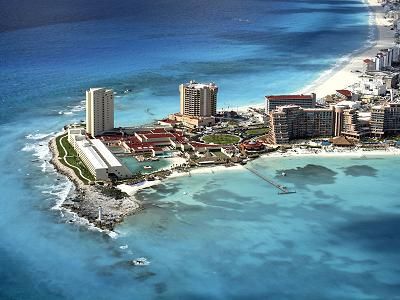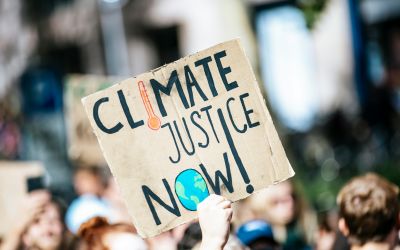Mexico´s national ambition
Tackling climate change is an enormous responsibility. The world is in an emergency situation that does not recognise geographical boundaries, economic interests or social groups. Today Mexico, in common with other nations, is confronting this most serious threat of the 21st century, and implementing strong measures to adapt to and mitigate the effects of the changing climate.

The report Climate Change 2013: The Physical Science Basis, recently published by Working Group I of the Intergovernmental Panel on Climate Change (IPCC), reveals that the average global temperature has risen by 0.85°C
from pre-industrial times, and confirms this change is caused by the high concentration of greenhouse gases and particles in the atmosphere resulting from human activities.
Additionally, the report observes that if this trend continues, global average temperature will increase between 1.5°C and 4.5°C by the end of this century, with subsequent major impacts and unpredictable climate scenarios. In the light of this challenge, we cannot wait for the 2015 negotiations to come into force by 2020; it has become imperative to take immediate action to prevent and reduce the impacts of climate change.
According to the International Energy Agency, Mexico contributes 1.4 per cent to global emissions of greenhouse gases (2012); however, the country is highly vulnerable to the effects of climate change. In recent history, we have not experienced consequences of meteorological events comparable to those that impacted our shores in September 2013 as a result of the storms Ingrid and Manuel. The financial impacts are estimated at over 6 billion dollars in infrastructure damage, added to the loss of human lives and severe damage to productive systems on the Pacific coast.
For these reasons we are implementing strong measures at all levels to mitigate our emissions and adapt to the impending consequences of this phenomenon. We are the only developing country with a General Law on Climate Change, which mandates the reduction of greenhouse gas emissions and substances by 30 per cent below baseline by 2020, and by 50 per cent by 2050, relative to the year 2000.
Promoting green growth
President Enrique Peña has set sustainability as a country priority, as reflected in our National Development Plan 2013-2018. This guiding document will lead our efforts over the next few years, and charts the way for the promotion of green growth as a means to achieve economic prosperity while preserving the environment, improving the efficient use of natural resources, and enhancing social inclusion.
"For Mexico green growth is the promise of a better future for humanity and the planet"
We are firmly convinced of the need and the opportunity of addressing social, economic and environmental challenges in tandem through green growth and sustainable development policies. For Mexico green growth is the promise of a better future for humanity and the planet. It is the ability to grow and generate wealth, without damaging our environment and natural heritage for present and future generations.
At the end of 2012, the Mexican Congress passed the General Law on Climate Change (GLCC). This law establishes the institutional framework to address this challenge with a long-term vision, and promotes concurrence of national and subnational authorities for the implementation of policies and measures through the National Climate Change System. Climate policy planning is implemented through the National Strategy.
Mexico’s GLCC charts the pathway to a low carbon future by setting goals to reduce emissions, discourage the use of fossil fuels, intensify the use of renewable energy, increase energy efficiency, improve public transport infrastructure and solid waste management, and significantly reduce deforestation. It also includes a series of measures to adapt to the climate change impacts we are already facing.
National Climate Change Strategy
With the National Climate Change Strategy (NCCS), the Government of Mexico reaffirms its determination to coordinate activities from institutions, programmes, authorities and society as a whole, to implement a far-sighted climate policy to a 40-year horizon.
Mexico’s NCCS foresees mitigation and adaptation measures articulated in eight central action areas:
- Reduce the vulnerability and increase the resilience of people living under risk conditions, and strengthen the adaptation capacity
- Reduce the vulnerability and increase the resilience of productive systems and strategic infrastructure
- Enhance the adaptive capacity of ecosystems to the effects of climate change
- Accelerate the energy transition towards clean energy sources
- Reduce the intensity of energy demand through energy efficiency schemes and responsible consumption plans
- Move to sustainability in cities, with intelligent mobility systems, integrated waste management schemes and low carbon footprint buildings
- Promote best practices in agriculture and forestry in order to increase and preserve natural carbon sinks
- Reduce emissions of short-lived climate pollutants (SLCP) such as black carbon and methane, yielding co-benefits in health and well-being.
These eight fundamental areas of action also have criteria for local authorities to prioritise actions and implement specific measures according to the conditions of different country regions.
Special Climate Change Program
To ensure the viability of this strategy, effective coordination is established among the three levels of government in areas such as research, environmental culture and the strengthening of international cooperation. The practical implementation of these areas of action will be guided by the Special Climate Change Program, currently under development, which will translate the strategy into concrete goals to 2018 under five pillars:
- Energy transition
- Reduction of energy intensity
- Models of sustainable cities
- Best practices in agriculture and forestry, and
- Emissions reduction of short-lived climate pollutants.
The reduction in short-lived pollutants will result in multiple social, economic and environmental benefits. In this regard, we support the Climate and Clean Air Coalition (CCAC) initiative as an additional and complementary effort to actions under the UN Framework Convention on Climate Change (UNFCCC).
"The reduction in short-lived pollutants will result in multiple social, economic and environmental benefits"
We also have the national objective of implementing actions on adaptation under a coherent policy framework that addresses the ecosystem and its social, productive and infrastructure aspects at national, regional and local levels.
Mexicois vulnerable and needs to work with a sense of urgency to reduce greenhouse gas emissions and increase the resilience of the social sector, its strategic infrastructure, their productive systems and ecosystems. Therefore, the instruments and processes that derive from our law aim to achieve the country’s transition to a competitive, sustainable and resilient economy, with low carbon emissions. Our current legal framework on climate change offers the opportunity to build a prosperous, sustainable and globally responsible country.
Responsible global actions
Mexico is an active player in the climate negotiations for the achievement of a new Agreement in 2015; however, we cannot wait until 2020 to start making a difference at home. The challenge is of unprecedented magnitude and our response must be equally determined and immediate. The ambition we embrace now will determine the scope and effectiveness of a future agreement.
We have reached important agreements at the multilateral level, and today we are responsible for their effective implementation. Institutional structures concerned with finance, technology and adaptation, agreed in Cancún (above), open a new era in international cooperation to address the climate change phenomenon, and we must make them operational without delay.
The Durban Platform offers the possibility to create a strengthened and effective climate regime that provides a comprehensive framework in order to keep rises in global temperature below 2°C. Therefore, Mexico will continue to take ambitious actions domestically and, in parallel, encourage the collective spirit to avoid the catastrophic impacts foreseen by science.
We can only confront climate change effectively by acting now with a long-term vision. We must seize the opportunities to reduce emissions that exist in various sectors and impel sustainable development and low carbon resilient growth. The range of opportunities is wide in areas such as the use of renewable energy, energy efficiency, reduction of hydrofluorocarbons (HFCs) and short-lived climate pollutants, reducing emissions from deforestation and forest degradation, and emissions from international aviation and maritime transport.
Actions in these areas will enhance our national ambition and contribute to achieving broader development goals. However, the implementation of our national goals requires a legally binding global instrument to provide legal certainty, ensure the participation of all major emitters and of all countries with fairness and transparency, and provide equal rules.

In Mexico, we want to share our experience in the development of climate legislation with other countries, and demonstrate the key role of national legislation in building and supporting the implementation of multilateral agreements.
We look forward to an effective dialogue in Warsaw (pictured left) that contributes to strengthening national initiatives and paves the way for a global and solid cooperation regime to address climate change as the greatest challenge of the 21st century.








